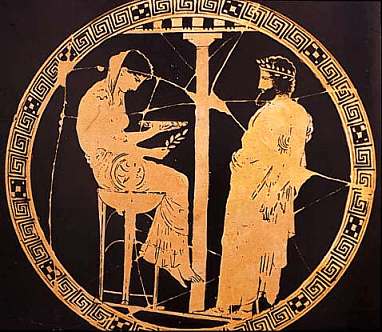 In a recent Onion AV Club interview, Louis C.K. says:
In a recent Onion AV Club interview, Louis C.K. says:To me, there's a huge difference between criticism and reviewing...To me, a critic is someone who analyzes a show, describes it, talks about the people in it, puts it in historical context of other shows like it, compares it and stuff, and then talks about the intent of the show and whether it failed or didn't. At the end, they usually say, "By the way: not for me." But reviewers now just go, they're like bloggers, they go, "Ha ha hi. Don't bother seeing this, it's shit. Trust me, it's crap. I like this show. That show I just saw sucks. Fuck you. And by the way, I ate a muffin today."This is one piece of the puzzle. Here's another. Recently, the hoary speechwriting cliche of starting with a dictionary definition of a word (or Lexis/Nexus hits) has been updated to something like "If you look up [insert topic here] in Google..." or "Wikipedia says..."
Then there's YouTube, and the whole "Web 2.0/User-generated content" world. That's another piece.
Put all this together and what do you have? A cacophony of uninformed, braying idiots.
Louis C.K. is right - there is a crucial difference between "criticism" (which is informed by experience, knowledge, and reason) and "opinion" (which isn't informed, and doesn't have to be).
But the Internet glosses over all that. Everyone has a soapbox - a blog or forums or website - and they're all yelling. People behave atrociously in forums, and declaim uninformed, biased opinion as though it were fact. Pseudo-scientific surveys and charts mingle with rumors, lies, speculation, and even a bit of the truth now and then. People link to each other and re-post over and over again.
Digg is the height of this nonsense. Man, who gives a fuck what most people have to say? And who gives a fuck about what most people think is important? Digg is already being gamed, though they vehementy deny it. So the crowd is already corrupted.
But let's pretend it's not for now. Pick any topic or story on Digg (ideally one that you know something about). Then start wading through the pages of idiocy that follow. It's enough to make you swear off the Internet, or at least give you a migraine. I guarantee the threads can't stay on topic longer than the first page, and everything after the first 5 posts is usually complete noise. It's like Slashdot with a lower average IQ.
This is revolution(ary)?
Wikipedia is sort of like the "Family Feud" version of the facts. It's not necessarily what's true, it's just what the majority thinks or accepts is true. One reason Wikipedia is problematic is the folks "running" it are making some arbitrary and poorly-thought-out decisions about what's allowed and what isn't. But they don't see it that way.
And much of the information is in a state of flux as people constantly edit it. It's an interesting experiment, but hardly a rock-solid source of objective information.
Google isn't much better. Google isn't a definitive source of truth. It's just a collection of junk. Google is great at helping you find what most people thought was a useful answer. And it is frequently entertaining, if not the absolute truth all the time (remember the whole "miserable failure" thing?).
But that distinction is lost on most people. Google becomes truth. And unlike Wikipedia, it's nearly impossible to challenge or alter if Google is wrong.
So put all this together and what do you get? A stack of useless opinions feeding back on itself, endlessly repeated, cataloged, and searched.
The Internet has become our Oracle. And it is wrong.
1 comment:
You posted this on your blog. Isn't that a little bit like Ed Jew turning himself in in Burlingame?
This comment is an example of exactly what you're talking about, isn't it?
Post a Comment